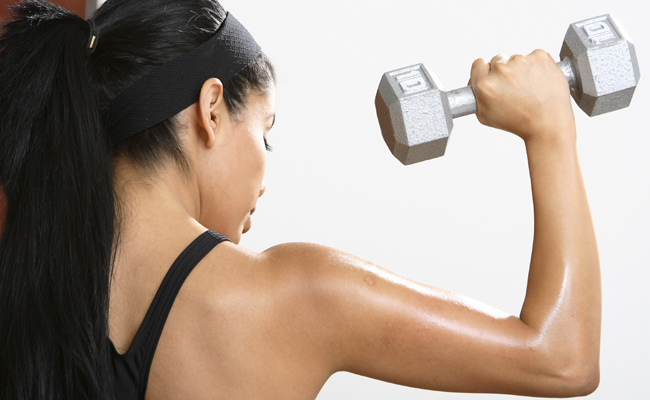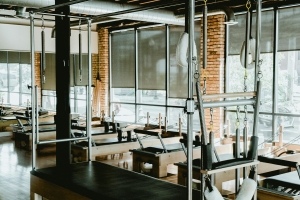Ideas for Building up Shoulders Effectively

Many people complain that no matter how hard they work their shoulders, they never seem to grow. The problem most people face is that they are actually doing too much with their shoulder workouts. Let's explore...
The shoulder joints are very complex and offer an advanced degree of mobility. This complexity, however, leads to a greater risk of error and injury. A common mistake when working one’s shoulders is performing too many reps and not doing exercises that target all parts of the shoulder- the anterior deltoids, posterior deltoids, and medial deltoids- in a balanced way.
Another reason shoulders are notoriously hard to grow is that many people forget to target them during their workouts. Standard strength training exercises such as press-ups, squats, lunges, bicep curls and sit-ups all miss the shoulders. People may think they are performing a “full body workout” but they are actually leaving out this major muscle group. Doing shoulder exercises isn’t just good for shaping and toning your upper back; these movements also improve posture and increase flexibility.
To get some tips on how to effectively work your shoulders, we chatted with Jermaine Archibald, a certified personal trainer and strength and conditioning coach. When we tell you this guy has shoulders, we mean, this guy has shoulders. Jermaine fills us in on how to get those strong, rounded shoulders you’ve always wanted.
Q: How many times a week do you recommend performing shoulder workouts?
A: To effectively build your shoulders, I’d recommend only training them once a week. The reason for this is that on days when you are performing strength training exercises for other big muscle groups, such as your chest or your back, your deltoids come into play, and you are actually working your shoulders without even knowing it. When doing a bench press, for example, your shoulders are getting a lot of action, even though the exercise doesn’t primarily target them. So, if you’re doing isolated shoulder exercises 3 times a week in addition to your other strength training, you are simply doing too much. You will overwork the muscle.
Q: What’s your favourite type of shoulder exercise to perform?
A: My favourite shoulder exercise is the seated overhead press. Sit straight on a bench and hold one dumbbell in each hand. Raise your arms up overhead, making sure you get a nice explosive movement on the way up and a controlled movement on the way down. If you’re looking to build, I’d recommend doing 8-12 reps.
Q: What are some other good shoulder exercises that incorporate dumbbells?
A: A good exercise I like to do as a warm-up is anterior and lateral shoulder raises. This move gets your deltoids fired up in different places and gets your muscles ready for your workout. Take a light dumbbell in each hand and raise one arm straight out in front of you, and the other arm straight up to the side of you. Alternate arms on each rep. This is a good move that will hit your shoulders from different angles.
Q: I’ve been told an Olympic bar is a useful piece of equipment for shoulder workouts. What sort of things do you do with it?
A: Olympic bars are great for performing the seated overhead press I mentioned earlier. If you’re not strong enough or comfortable using dumbbells, the exact same exercise can be done with a bar. The Olympic bar can also be used to perform high clean pulls, which are a great power exercise for your shoulders. With an overhand grip, raise the bar up as if you are going to do a clean and press, but stop when you reach shoulder height and go back down. You get that great upright movement by doing this, which works wonders for shoulder strength.
Q: What’s the best way to avoid injury?
A: Pay attention to all angles of your shoulders and take care of your rotator cuffs, which are your shoulder’s stabilising muscles. To strengthen your rotator cuffs, I recommend incorporating the ‘farmer’s walk’ into your routine. Take heavy dumbbells in both hands and simply walk a couple of laps around the gym. You’ll be taking care of your rotator cuffs by making sure they are strong and stable. The most common shoulder injuries come from having weak rotator cuffs.
So there you have it! If you want to grow your shoulders, focus on working your anterior, posterior and medial deltoids equally, strengthen your muscles and don’t over train.





